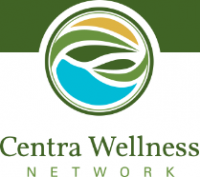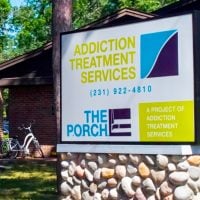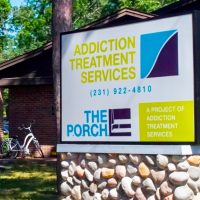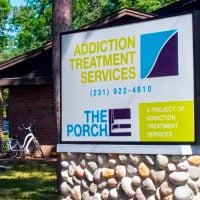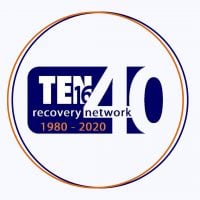Little River's Behavioral Health
Drug Rehab Center in Manistee, Michigan
Little River's Behavioral Health in Manistee, Michigan offers comprehensive addiction and substance abuse treatment programs, including detoxification, personalized treatment plans, counseling, and aftercare planning, with a focus on empathy and respect for each individual on their recovery journey, as well as evidence-based treatments and holistic modalities.
About Little River's Behavioral Health in Michigan
Little River's Behavioral Health in Manistee, Michigan is dedicated to offering comprehensive and innovative addiction and substance abuse treatment programs. They strive to ensure each individual who receives treatment is treated with empathy and respect and is given special attention to help them understand and process their recovery journey. Little River's Behavioral Health offers a wide range of services for individuals struggling with addiction and substance abuse including detoxification, personalized treatment plans, inpatient and outpatient services, counseling, and aftercare planning.
Little River's Behavioral Health offers evidence-based treatments, such as Cognitive Behavioral Therapy, that provide education, skills building, and emotional support to those in the midst of recovery. They also offer peer support services and holistic modalities such as yoga and meditation. The facility provides a safe, medically monitored environment and family therapy sessions are available to help involve loved ones in the recovery process.
Little River's Behavioral Health is accredited by the Joint Commission on Accreditation of Healthcare Organizations, has a license from the Michigan Department of Health and Human Services and is a recipient of the CARF Three-Year Accreditation award. In addition, the facility offers various program options such as the Women’s Program, which offers a focused approach to address gender-specific addiction treatment issues. They also provide a No Cost Extended Care program for those in need of an extended stay at their facility.
Genders
Ages
Modality
Additional
Accreditations
SAMHSA
Conditions and Issues Treated
Opioid addiction is a common form of addiction, often caused by prescription drugs that are abused. Addiction is treated by detoxifying the body and following up with therapies to correct behavior and target the root of the problem.
Most opioid addiction begins with patients being prescribed painkillers after an injury or surgery. The body becomes used to the chemicals in these medications and soon no longer responds to their presence. As a result, addicts seek out stronger opiate-based medications like Oxycodone to compensate for the lack of effectiveness.
The most dangerous aspect is that these addictive behaviors often get carried over onto illicit drugs like heroin, which are increasingly potent and result in lower life expectancies.
Levels of Care Offered
This center offers a variety of custom treatment tailored to individual recovery. Currently available are Aftercare Support, Drug Rehab, Outpatient, with additional therapies available as listed below.
Outpatient treatment programs are less intensive than an inpatient program. Participants live at home while working or going to school. Benefits include being able to continue relationships with family, friends, and work/studies. Treatment includes educating patient on addiction to drugs, medication, and counseling. Benefits include being able to continue relationships with family, friends, and work/studies. Treatment includes educating patient on addiction to drugs, medication, and counseling. Counseling sessions are for either individual or group.
Aftercare Support in drug rehab is crucial because it helps people stay sober after treatment. The benefits of Aftercare Support are that it provides a pathway that will help people get sober for life. It supports healing at all levels, physical, mental, emotional, and spiritual.
Therapies & Programs
Individualized Treatment is essential because it gives addicts the ability to participate in a program that meets their unique needs. An addict should work with professionals who understand what they’re going through, especially if the addict is actively using.
Trying to find a treatment program that meets your needs can be challenging. It’s even more complicated if you don’t know what kind of treatment you need. Being able to have professionals who are experienced with treating your situation is key to getting sober. Finding the right treatment program for an addict is difficult, but it’s even harder without communicating with those who have experience treating your specific situation.
Couples therapy is beneficial for couples in which at least one partner has a substance use disorder. This type of therapy can help partners improve communication skills, which is an important factor in a healthy relationship. It can also help partners better understand one another so they have a greater understanding of how the other partner may be feeling.
Benefits of couples therapy include:
- Improvement in communication skills
- Increased understanding of the dynamics within a relationship
- Increased sense of support and trust in the relationship
- Better teamwork between partners/increased willingness to listen and work together
- Enhanced tolerance of each other’s shortcomings
- Improved ability to have open, honest communication with each other
Family dysfunction can often be the underlying cause of substance abuse. To get sober, you need to find a different way to cope with the pain in your life. Family therapy can help you and your family deal with old issues that may trigger substance abuse. It will help everyone understand why each member of the family feels and acts the way they do. It can give everyone new tools to manage their emotions so that they don’t want to drink or do drugs.
A person looking for drug recovery should know that group therapy is an essential tool. Group therapy provides accountability and friendship to people with addiction. It is recommended as a lifetime treatment habit. Group therapy occurs in a group setting as opposed to a one-on-one setting. It benefits patients by providing a feeling of support and letting them know they are not alone. Patients at Little River's Behavioral Health also learn to build trust and understanding and gain perspective through discussions.
If you are looking for a drug addiction treatment program that also provides trauma therapy, then Little River's Behavioral Health in Manistee, MI is a great option. The staff at this facility specialize in helping people process and understand the past traumas that have led them to addiction. This approach can help individuals move forward with their recovery and take a better hold of their sober future.
The benefits of trauma therapy at Little River's Behavioral Health in Manistee, MI are as follows:
- People will become less likely to engage in self destructive behaviors.
- Their emotional and mental health will significantly improve.
- They will be more confident in their abilities to live an addiction-free life.
- People will be able to connect with other people on a deeper level.
- Their problems with intimacy and trust will improve.
Dialectical behavior therapy is a type of cognitive-behavioral therapy that focuses on eliminating specific negative thoughts that can potentially lead to an individual inflicting self-harm. It helps treat patients exhibiting uncontrollable emotions, intense mood swings, and borderline personality disorders.
The term “dialectic” means the integration of opposites. In the substance abuse context, dialectical behavior therapy refers to accepting the patient’s addiction and changing their thoughts and behavior. It improves life skills such as controlling intense emotions without reacting impulsively, resolving interpersonal conflicts effectively, and promoting awareness about self and others.
Cognitive behavioral therapy (CBT) is a type of psychotherapeutic treatment that is focused on changing negative ways of thinking that contribute to addictive behavior.
Cognitive behavioral therapy is beneficial for:
- People who are seeking to overcome addictive behavior
- Those who struggle with addictive behavior and mental illness
- People who have a genetic history of addiction in their family
- Those who don’t want to depend on medications
- Those who need a more practical treatment approach
Addicts seeking sobriety can find quick results with Rational Emotional Behavior Therapy. This type of counseling offered by Little River's Behavioral Health replaces negative and self-limiting thoughts with positive and productive behaviors. This allows addicts to move forward without having to deal with ongoing treatment throughout their lives.
Life skills training is beneficial for addicts in recovery because it helps them learn how to take care of themselves and improve their quality of life, which can promote feelings of purpose and motivation.
This type of treatment works by teaching individuals life-enhancing skills that support positive living, including:
- Healthy lifestyle habits
- Skills to effectively manage stress
- Effective communication skills to help them get their needs met without turning to drugs or alcohol
- Money management and budgeting skills so they can continue to take care of themselves after treatment ends.
Additional Details
Specifics, location, and helpful extra information.
Manistee, Michigan 49660 Phone Number(231) 723-8299 Meta DetailsUpdated November 25, 2023
Staff Verified
Little River's Behavioral Health Patient Reviews
There are no reviews yet. Be the first one to write one.
Manistee, Michigan Addiction Information
Michigan has the second-highest rate of drug and alcohol abuse in the nation. Heroin is linked to more than 50% of the state's hepatitis C cases. Marijuana is the drug most often associated with crimes in Michigan, followed by methamphetamines. Opioids alone are responsible for almost 20% of all drug overdose deaths in Michigan.
Manistee, Michigan has a higher rate of drug addiction than the national average. Around 5% of Manistee residents reported abusing prescription drugs in the past year. Data from (SAMHSA) indicates 1,191 admissions to substance abuse treatment programs in Manistee in 2016. Many different drug addiction treatment programs are available, so finding the right one for you is important.
Treatment in Nearby Cities
- Southgate, MI (210.0 mi.)
- Oak Park, MI (199.0 mi.)
- Portage, MI (147.9 mi.)
- South Haven, MI (130.1 mi.)
- New Buffalo, MI (174.1 mi.)
Centers near Little River's Behavioral Health
The facility name, logo and brand are the property and registered trademarks of Little River's Behavioral Health, and are being used for identification and informational purposes only. Use of these names, logos and brands shall not imply endorsement. RehabNow.org is not affiliated with or sponsored by Little River's Behavioral Health.


